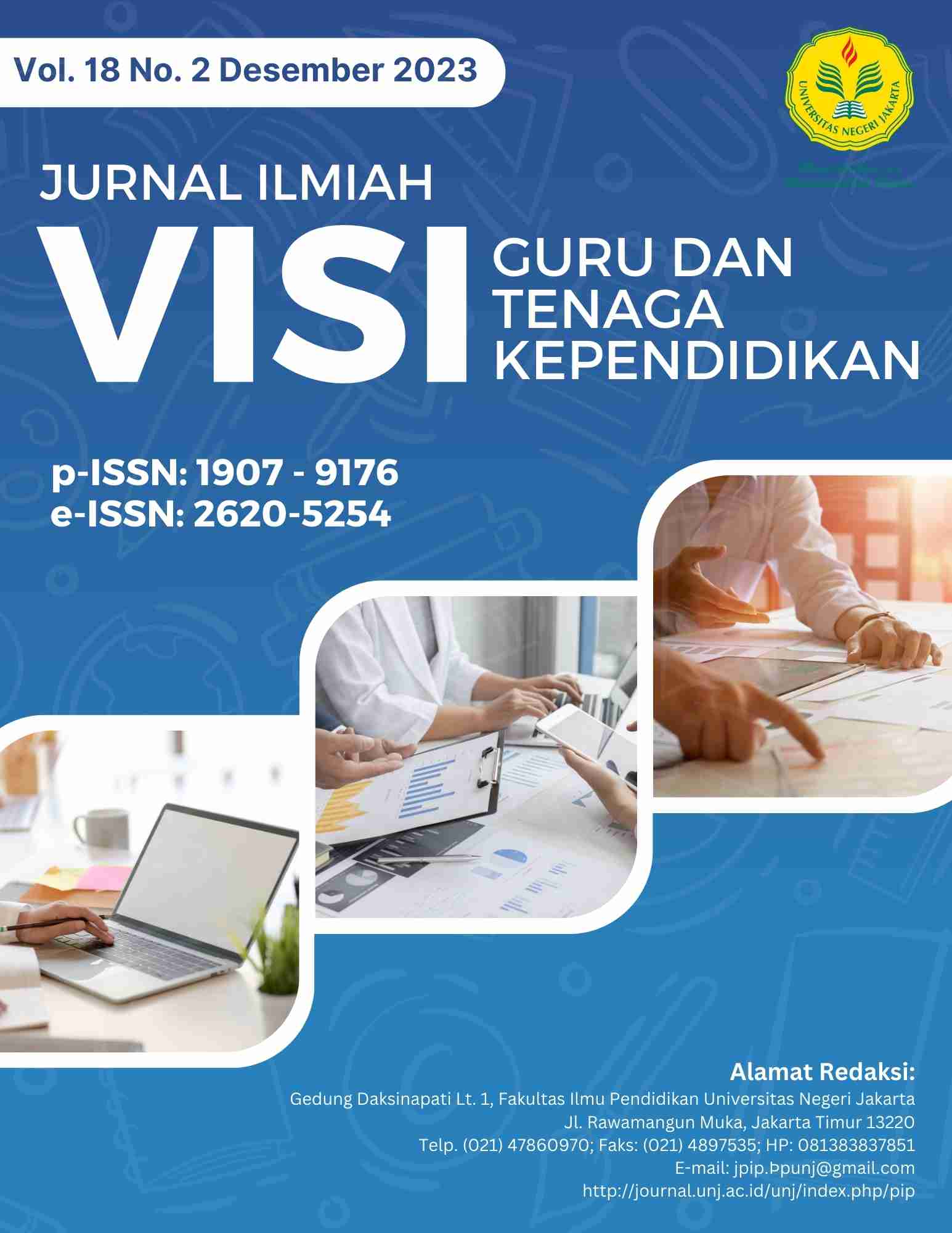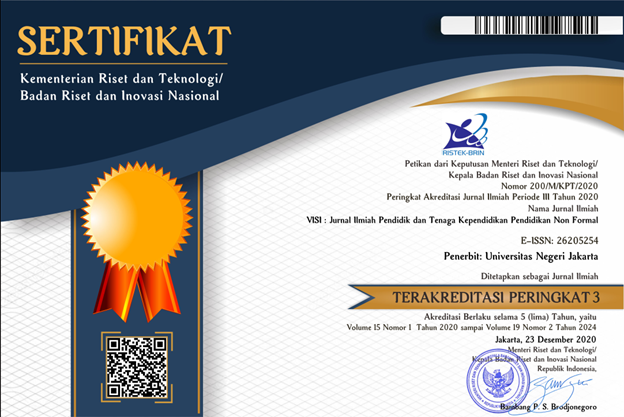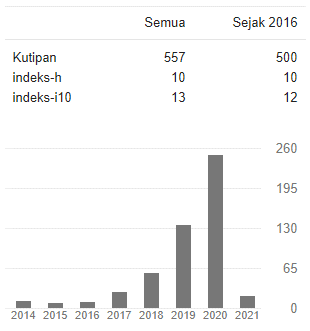The Application of Eco-Edutainment-Based Quantum Teaching Model to the Learning Outcome of Non-formal Education Study Programme Students
DOI:
https://doi.org/10.21009/JIV.1802.3Keywords:
Quantum Teaching, Eco-Edutainment, Learning OutcomesAbstract
Based on the results of monitoring and evaluation of lectures in the Nonformal Education Study Programme, it is found that students experience learning difficulties which have an impact on learning outcomes that are not optimal in the student's creative work course, which is one of the core practical courses of the study programme. This research aims to improve learning in student creative work courses by using the eco-edutainment-based quantum teaching model to improve student learning outcomes. This research was conducted on 3rd-semester students in the 2022/2023 academic year using quantitative methods with a quasi-experimental design, pretest-posttest with Non-equivalent Control Group Design. The population of this study were 30 experimental class students (semester 3A) and 30 control class students (semester 3B). The research was conducted in the Nonformal Education Study Programme and Joint Lecture Building 3 FKIP Bengkulu University laboratory. The results showed that applying the eco-edutainment-based quantum teaching model could improve student learning outcomes by 79.83%, or the experimental class experienced an effective increase, while the control class was only 58.51% or experienced a sufficient increase. So, applying quantum teaching models based on eco-edutainment can improve student learning outcomes.
Downloads
Published
How to Cite
Issue
Section
License
Authors who publish with this Journal agree to the following terms:
- Author retain copyright and grant the journal right of first publication with the work simultaneously licensed under a creative commons attribution licensethat allow others to share the work within an acknowledgement of the work’s authorship and initial publication of this journal.
- Authors are able to enter into separate, additional contractual arrangementfor the non-exclusive distribution of the journal’s published version of the work (e.g. acknowledgement of its initial publication in this journal).
- Authors are permitted and encouraged to post their work online(e.g. in institutional repositories or on their websites) prior to and during the submission process, as it can lead to productive exchanges, as well as earlier and greater citation of published works.
- Users/public use of this website will be licensed to CC BY-NC-SA Creative Commons Attribution-NonCommercial-ShareAlike 4.0 International License









